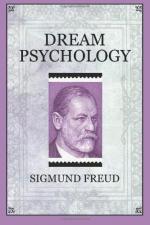Company; at table or table d’hote. The recollection of the slight event with which the evening of yesterday ended is at once called up. I left a small party in the company of a friend, who offered to drive me home in his cab. “I prefer a taxi,” he said; “that gives one such a pleasant occupation; there is always something to look at.” When we were in the cab, and the cab-driver turned the disc so that the first sixty hellers were visible, I continued the jest. “We have hardly got in and we already owe sixty hellers. The taxi always reminds me of the table d’hote. It makes me avaricious and selfish by continuously reminding me of my debt. It seems to me to mount up too quickly, and I am always afraid that I shall be at a disadvantage, just as I cannot resist at table d’hote the comical fear that I am getting too little, that I must look after myself.” In far-fetched connection with this I quote:
“To earth, this weary earth, ye
bring us,
To guilt ye let us heedless go.”
Another idea about the table d’hote. A few weeks ago I was very cross with my dear wife at the dinner-table at a Tyrolese health resort, because she was not sufficiently reserved with some neighbors with whom I wished to have absolutely nothing to do. I begged her to occupy herself rather with me than with the strangers. That is just as if I had been at a disadvantage at the table d’hote. The contrast between the behavior of my wife at the table and that of Mrs. E.L. in the dream now strikes me: "Addresses herself entirely to me."
Further, I now notice that the dream is the reproduction of a little scene which transpired between my wife and myself when I was secretly courting her. The caressing under cover of the tablecloth was an answer to a wooer’s passionate letter. In the dream, however, my wife is replaced by the unfamiliar E.L.
Mrs. E.L. is the daughter of a man to whom I owed money! I cannot help noticing that here there is revealed an unsuspected connection between the dream content and my thoughts. If the chain of associations be followed up which proceeds from one element of the dream one is soon led back to another of its elements. The thoughts evoked by the dream stir up associations which were not noticeable in the dream itself.
Is it not customary, when some one expects others to look after his interests without any advantage to themselves, to ask the innocent question satirically: “Do you think this will be done for the sake of your beautiful eyes?” Hence Mrs. E.L.’s speech in the dream. “You have always had such beautiful eyes,” means nothing but “people always do everything to you for love of you; you have had everything for nothing.” The contrary is, of course, the truth; I have always paid dearly for whatever kindness others have shown me. Still, the fact that I had a ride for nothing yesterday when my friend drove me home in his cab must have made an impression upon me.




